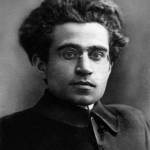 Brian Zahnd’s father was a judge who taught Brian that “the majority is almost always wrong” and that the job of a judge was “to protect the minority from the majority” (73, in A Farewell to Mars). Why? majorities are more interested in power than truth. Power in the hands of a majority leads to scapegoating, and this leads to a reflection by Brian (and me) on what happens to the cross when viewed from the angle of the majority.
Brian Zahnd’s father was a judge who taught Brian that “the majority is almost always wrong” and that the job of a judge was “to protect the minority from the majority” (73, in A Farewell to Mars). Why? majorities are more interested in power than truth. Power in the hands of a majority leads to scapegoating, and this leads to a reflection by Brian (and me) on what happens to the cross when viewed from the angle of the majority.
Lynch mobs, of course, think they are administering justice. Mobs don’t take the time to wonder if it might be incarnating evil and injustice. Jesus, Brian observes, was almost always against the crowd and he points us to John 6:15, 22-59; Luke 19:37-44 and John 7:19-20.
“The cross shames the ancient deception that freedom and justice can be attained by killing” (76). Crowds can be diabolical, demonic, and satanic. Mobs takes on a spirit of its own and becomes satanic in violence.
Mobs find a scapegoat whom the majority/mob victimizes. When this happens “peace” is restored. Brian is here pressing into service the scapegoat theory of Rene Girard. The crowd feels better and peace is restored. It protects itself from itself unknowingly.
Never follow an angry crowd; it’s a mob of violence venting its collective anger on victims of injustice. “The crowd is antichrist” (78). It’s the opposite of loving your enemy into a neighbor. To follow Christ is to separate from the crowd and become controversial and a potential victim of the majority’s power of scapegoating. [Many will opt now into self-delusion of seeing themselves as the victim. Avoid that for now.] Jesus formed flocks of love, not mobs.
On playgrounds often a child becomes the victim of scapegoating by a majority, anger-laced, unconscious-acting mob.
Jesus was a scapegoat victim of the mob crowds swaying cowardly leaders. In so choosing this role, this victim-as-scapegoat role, Jesus dragged scapegoating into the public realm to expose it for what it was: violence, not justice and truth. He shouldered the blame-game.
The cross beckons us to end the game of scapegoating. He is the sacrifice that ends sacrificing.
How? We might turn off the agitations of the majority voice — our current news media are, in my view, scapegoating machines. Politics has become a scapegoating rhetoric. The issue for us is how to live behind the Lamb who ended scapegoating. Theology at times can be scapegoating others.
“The crowd is a coward with a gun” (87).















